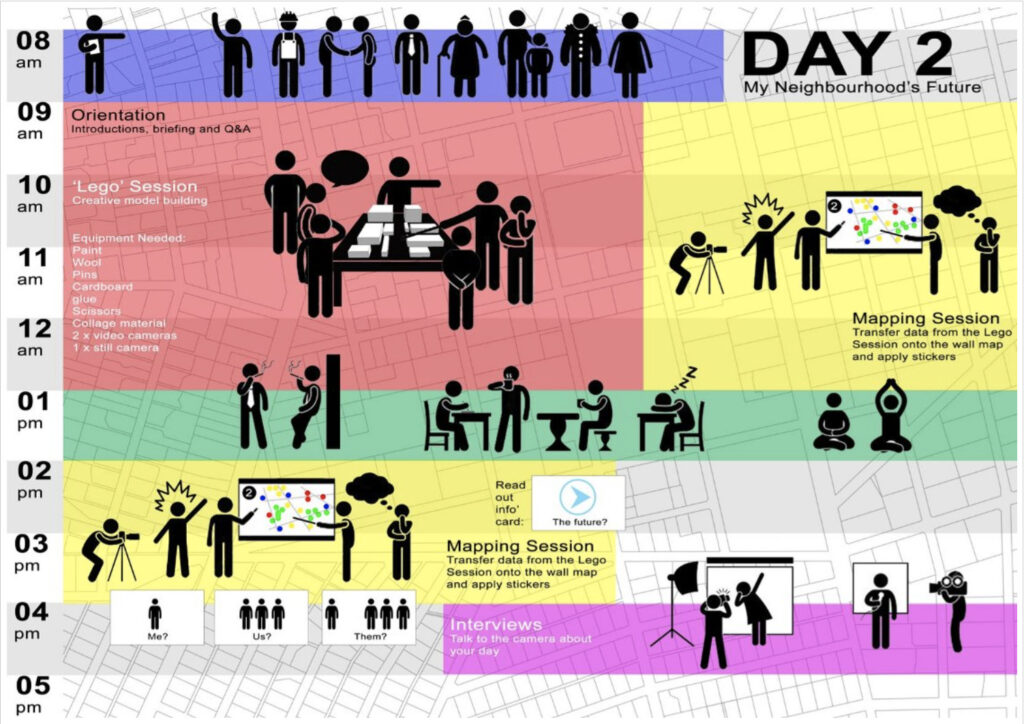South African City Futures is a collaborative project to reimagine multiple urban neighbourhoods to 2030 through an experimental workshop-driven methodology. It aims to challenge conventional ideas with local residents and stakeholders about the possible future shape, storylines, and trajectories weaving the urban fabric.
The project about doing things differently; to encourage South African cities and their constituent neighbourhoods to start thinking differently about their future. The intention is to implement an innovative project that is part research, part radical co-creation which combines the use of futures thinking, multi-stakeholder dialogue and multiple forms of visualization to reflect upon the future of urban neighborhoods to 2030.
The genesis of City Futures project was a deep satisfaction with the state of urban planning and the persistence and complexity of spatial inequality in South Africa. It as formed in 2011 as a collaborative project among public interest partners variously engaged in futures thinking to differently imagine our neighbourhoods to 2030 from the ground up.
It seeks to speculate about city trajectories through an interdisciplinary, experimental methodology and will resist the temptation to produce firm policy conclusions and recommendations. Rather it will offer a set of reflections gathered from participatory workshops with local residents and stakeholders that could inform and infuse various forums processes and methodologies. It was driven by a hunch that through creative process facilitation, away should be figured for participants to move between cognitive data and rational reasoning on the one hand and affective emotional registers on the other. Participants needed to navigate between the present, the past and the future in ways that illuminated individual and collective pathways to instill confidence that alternatives were conceivable.
Lastly different levels and scales of urban development from the vantage point of the neighbourhood were to be privileged as opposed to the municipal scale as a whole which is typically the reference point of local authorities. Concretely these imperatives were captured in the project workshop methodology as a dynamic articulation of three lenses on the South African neighbourhood:
- Future Form | the build environment space
- Future SIM | facts statistics and maps or big data
- Future Narrative | storylines of contemporary and future life

